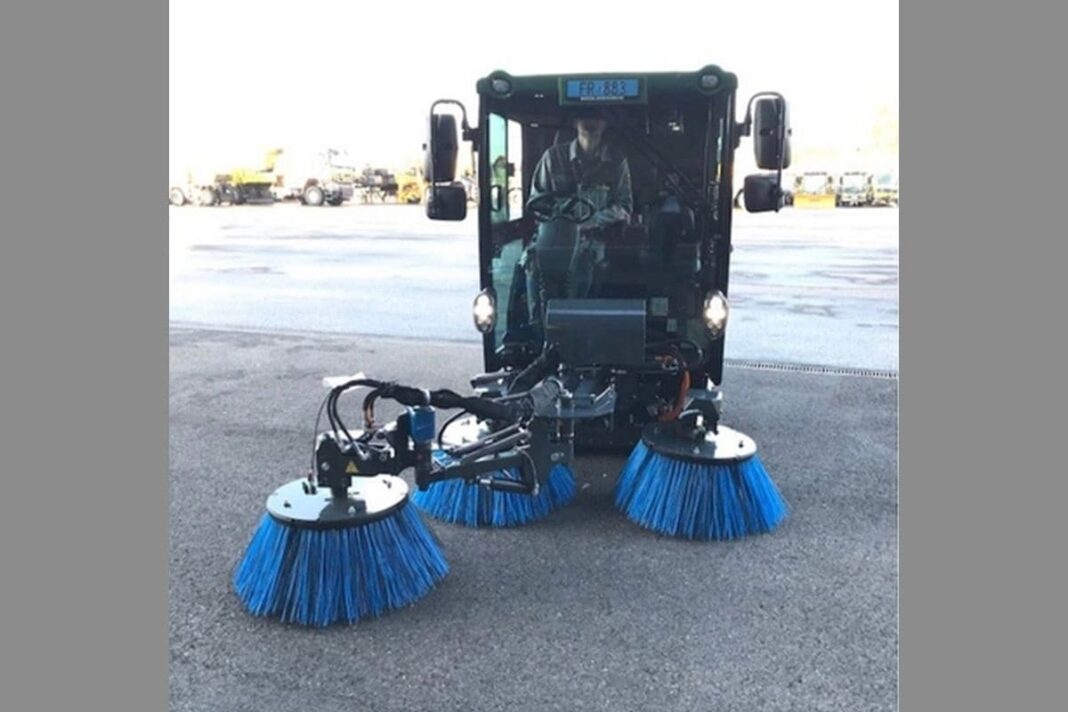Delhi could get a new crop of electric road sweepers to help clean up the city while simultaneously reducing pollution if a new proposal is approved before the New Delhi Municipal Council (NDMC). Kaviat India has imported Swiss electric road sweeping machines and submitted a proposal to the NDMC for their deployment, which the company says will reduce pollution in the city. Animesh Sinha, Managing Director, Kavyat India, spoke about how electric road sweepers can help reduce air pollution in the capital.
According to a 2019 report by The Energy and Resources Institute (TERI), each road sweeper covers a distance of 20 to 42 kilometers per day using 80 to 100 liters of diesel at the rate of about 12 liters of diesel per hour. . Sinha says that this means that a mechanical road sweeper contributes 120-150 tonnes of carbon dioxide every year which is added to the atmosphere. This is a concern when you see that even in summer, when Delhi’s air is relatively better than other times of the year, its AQI readings are still over 150 – three times the maximum allowable level of 50 more.
In 2017, the National Green Tribunal (NGT) had directed the Delhi government to explore alternatives powered by CNG or electricity in its report, TERI recommending that machines be run in double shifts on clean fuels like CNG or electricity . In order to reduce air pollution, given that only NDMC in Delhi was running its machines in double shifts.
Sinha made his proposal to NDMC to import India’s first electric road sweeper from Boschung in March this year. They are yet to receive official approval from the council, delayed due to the pandemic, though Sinha says the general response was ‘extremely positive’.
Boschkung’s machines are already in use in Switzerland, Germany, the UK and Spain. Kavyat will be the original equipment manufacturer for the Boschung S2.0 electric road sweeper in India.
Boschung S2.0 comes with a 54.4kW/h battery that can last up to 10 hours on a single charge. India’s temperature was a matter of concern when considering imports of Swiss machinery. “The battery should be ideal for Delhi summers where the temperature can go above 50 degree Celsius and in such cases the temperature of the battery inside the machine can go up to 60 degree Celsius. The model being imported into India is built to withstand temperatures of up to 55 degrees Celsius. The nickel cobalt aluminum (NCA) variety of lithium iron is used in batteries, just as Tesla does in its batteries.
“As far as battery disposal is concerned, we have a Switzerland government regulation for the recycling of waste materials used in batteries. The same rules will apply in India. The Indian government has yet to introduce electric road sweepers. Have not mentioned any guidelines regarding battery disposal. But it will be a concern only after about 8-12 years as we promise 8000 charging cycles,” Sinha said.
Cost and Deployment in India
The Boschung S2.0 Electric Road Sweeper is currently listed on the official eMarketplace website at a price of Rs.3.6 Crore. “We are very expensive as compared to our competitors,” Sinha said. “But at the same time the electric road sweeper will be able to clean at least 50 kms in a single shift. Thus in a time span of seven to eight years, Boshang’s road sweeper will prove to be a more economical option, given the fuel cost savings and reduction in air pollution.
He added that due to clean energy and less manpower required in operating the machinery, the cost of operating the Boschung S2.0 on the road is expected to be minimal.
The first phase of deployment is planned in Bengaluru, New Delhi, Indore, Bhopal, Lucknow, Noida and Greater Noida. “These are the areas we are looking at and officials at all these places had given a positive initial response to the idea, but the face-to-face meeting is pending due to the current circumstances,” Sinha said.
Kayviat India plans to eventually deploy Electric Road Sweepers at airports, railways, hospitals and other premier institutions in India. Boshang also plans to start manufacturing and producing batteries and machinery in India. “Once our machines start selling in India, we hope to set up charging stations supported by solar panels. But this is the next step in the plan.”













![Hotstar Premium Cookies 2019 [*100% Working & Daily Updated*] Hotstar Premium Cookies 2019 [*100% Working & Daily Updated*]](https://tahav.com/wp-content/uploads/2019/11/Hotstar-Premium-Cookies-Free-100x70.jpg)



